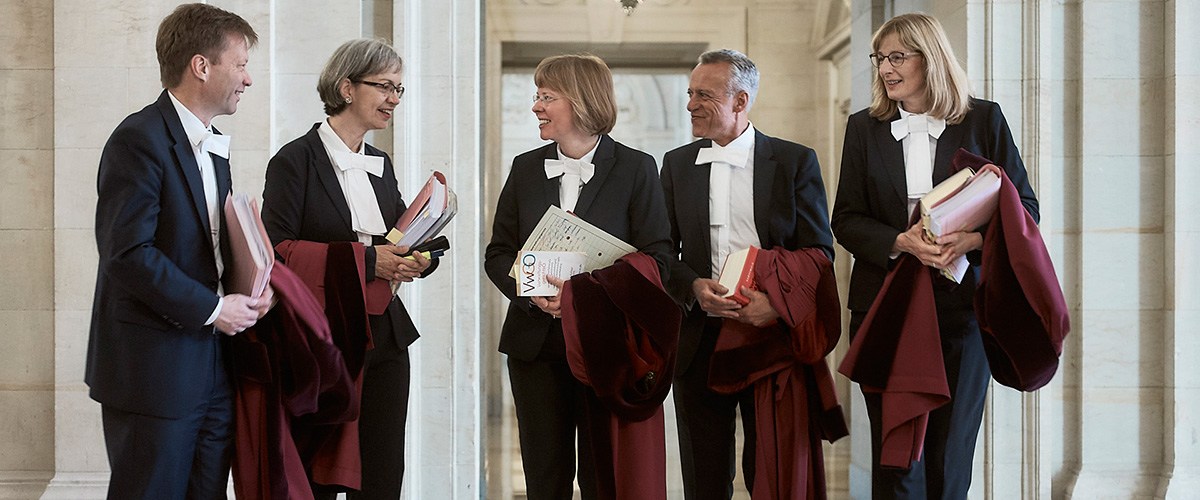Judges
Election and Appointment
The judges at the Federal Administrative Court are appointed for life. 55 federal judges currently work at the Court. The judges are elected by a Committee for the Election of Judges. The ministers of the federal states (Länder) responsible for the administrative courts and an equal number of members appointed by the Bundestag sit on this committee.
The Federal Minister of Justice chairs the Committee for the Election of Judges. He and all members of the election committee are entitled to propose candidates. The consultative council for judicial appointments of the Federal Administrative Court issues a written opinion about each proposed new member. The Committee for the Election of Judges is not required to accept this vote. It elects the candidates it deems suitable by simple majority.
The elected members are appointed by the Federal President if the Federal Minister agrees with the result.
Structure of the Judiciary
Most of the judges have previously worked in the administrative courts of the federal states. Judges may also have a background in federal or state administration. In particular the assembly of judges from all federal states and varying professional histories promotes balanced decisions and contributes to their acceptance.
Legal Status of the Judges
The legal status is defined by the German Judiciary Act. The judges are independent, which means not bound by instructions in the exercise of their duties and subject only to the law.
Unlike holders of political office or civil servants, they cannot be recalled or transferred to another office. The period in office for federal judges ends with statutory retirement age which is, in future, as a rule the age of 67 years.
Senates
The judges at the Federal Administrative Court discharge their judicial duties in senates. Each senate consists of a presiding judge and further judges. One or more research associates support the work of each senate.
There are currently ten senates deciding on appeals on points of law, and two senates deciding on military affairs at the Federal Administrative Court. There is also a senate dealing with in camera cases. It decides in cases where a government agency refuses to submit certain files to the court.
Five or six judges belong to each senate deciding on appeals on points of law, depending on the workload; three judges belong to each of the military affairs senates. Four judges are assigned to the senate dealing with in camera cases.
Lawful Judge
The Basic Law requires that it be known which judges will adjudicate when a case is accepted. The roster allocating court business assigns these responsibilities.
Grand Senate
Like in Germany's other highest federal courts, the Federal Administrative Court also has a Grand Senate. It adjudicates in cases where one senate wishes to deviate from the ruling of another senate in a point of law. Moreover, each senate is entitled to submit a question of fundamental importance to the Grand Senate, if it believes it necessary for the development of law or to ensure uniform jurisprudence.
The Grand Senate consists of the president of the Federal Administrative Court and one judge from each of its senates responsible for appeals on points of law. Its rulings are binding for the adjudicating senate in the matter presented.
Joint Panel
It must be noted that the Joint Panel of Germany's five highest federal courts is not the same as the Grand Senate. This Panel sits at the Federal Court of Justice in Karlsruhe. It adjudicates in cases where one of the highest federal courts wishes to deviate from the ruling of another of the highest federal courts or the Joint Panel in a point of law.
Proceedings are initiated through order of reference by the adjudicating senate. The Joint Panel consists of the presidents of the highest federal courts, as well as the presiding judge and one other judge of the senates involved in the dispute.


